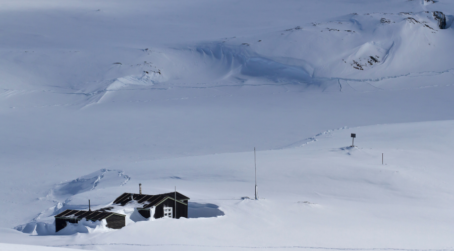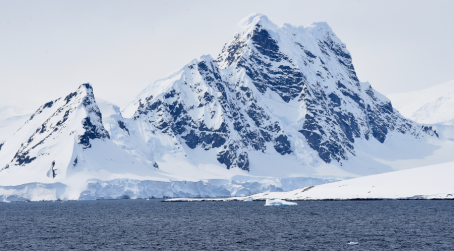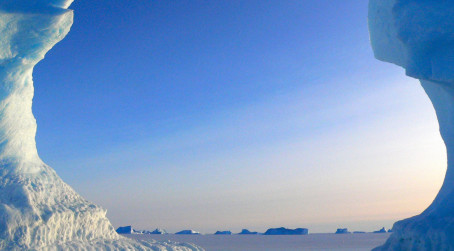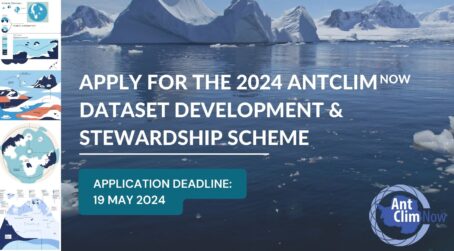The SCAR Scientific Research Programme, Near-term Variability and Prediction of the Antarctic Climate System (AntClimnow), will answer fundamental science questions (as identified by the SCAR Horizon Scan) relating to near-term Antarctic climate variability. They will make use of emerging capabilities to understand and quantify the range of possible near-term future climate states across a range of spatial scales. These advances include progress in modelling future climate change, understanding contemporary climate change and variability, and reconstructing past climate.
AntClimnow’s work will be complementary to that of the earlier SRP, Antarctic Climate Change in the 21st Century (AntClim21), which delivered on the key aim of producing improved projections of Antarctic climate change to 2100 and beyond. The focus on century timescales provides crucial information to researchers in many disciplines studying the impacts of longer-term climate change on Antarctica and wider impacts on the rest of the planet through, for example, sea level and ocean circulation. These are important topics that will still need to be addressed going forward as the next generation of SCAR Scientific Research Programmes begin working.
However, a focus on the century timescales does leave a major gap in terms of key questions in Antarctic climate science on near-term changes from years to multiple decades. These shorter time scales are highly relevant across multiple disciplines and to a range of key stakeholders whilst aligning strongly with scientific priorities identified as part of the SCAR Horizon Scan. New capabilities are emerging that will help to improve our understanding and our ability to quantify the envelope of possible near-term future climate states across a range of spatial scales. These advances include progress in modelling future climate change, understanding contemporary climate change and variability, and reconstructing past climate. A more integrated approach would also help to look beyond climate projections of the physical system, but consider the Antarctic environment as a whole.
The membership of the SRP is from a range of countries, representing the biological and physical sciences and other stakeholders. While there is a strong physical focus for much of the proposed research, the SRP will integrate research from multiple disciplines and complement existing SCAR activities.
The five main themes for AntClimnow are:
- Theme 1. Antarctic climate variability and its linkages to the global climate system
- Theme 2. Understanding present-day climate trends in Antarctica
- Theme 3. Predictability of the Antarctic climate system
- Theme 4. Global and regional cross-disciplinary impacts
- Theme 5. Communication of results to stakeholders
Current Chief Officers of the AntClimnow SRP are Rachel Cavanagh and Clare Eayrs. Please contact them if you have any questions.
 AntClimnow (Near-term Variability and Prediction of the Antarctic Climate System) is one of SCAR’s new flagship Scientific Research Programmes (SRPs).
AntClimnow (Near-term Variability and Prediction of the Antarctic Climate System) is one of SCAR’s new flagship Scientific Research Programmes (SRPs).





